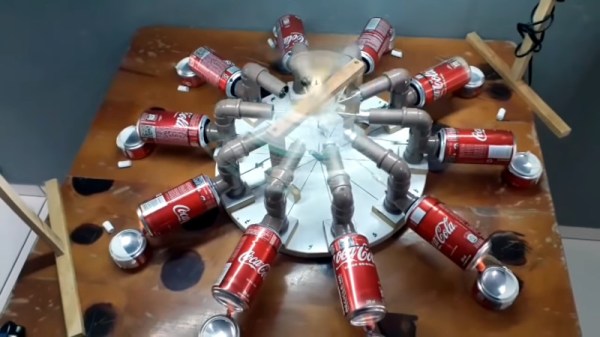Many of us have read about Stirling engines, engines which form mechanical heat pumps and derive motion from the expansion and contraction of a body of air. A very few readers may have built one, but for many they remain one of those projects we’d rather like to try but never quite have the inclination. The YouTube channel of [Geral Na Prática] should provide plenty of vicarious enjoyment then, with the construction of a range of Stirling engines from commonly available materials. We have Coke cans, PVC pipe, and nebuliser cartridges forming pistons and cylinders, with wire wool serving as a regenerative heat store. The latest video is below the break, an amazing 10-cylinder rotary device.
The Stirling engine is perhaps the quintessential example of a device whose time never came, never able to compete in power and efficiency with first steam engines and then internal combustion engines, it has over the years been subject to a variety of attempted revivals. Today it has appeared variously in solar power projects and in NASA’s hypothetical off-world power plants, and will no doubt continue to be promoted as an alternative energy conversion mechanism. We’ve featured many working model Stirling engines in our time and even done a longer investigation of them, but sadly we’ve yet to see a story involving a practical version.
Continue reading “Home Made Stirling Engines From Expedient Materials”











